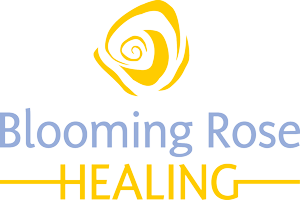Mental Health Awareness Month: In the Darkest Moments, Hope Endures
“In the blackest of your moments, wait with no fear.” Rumi
On May 18, 2003, I experienced profound grief following the loss of my daughter, Catherine Rose. Despite my flawless pregnancy, fate had other plans for me. Holding Catherine after her passing was a bittersweet moment, made more poignant by the presence of my mother, who had also endured the loss of a child at birth. In that shared sorrow, I realized my mother had never held her own daughter. In a gesture of solidarity, I passed my baby to her, saying, "Let's grieve together."
This year, Catherine Rose would have turned 21, prompting reflections on the significance of community and mental health support in times of loss and hardship.
This month marks Mental Health Awareness Month, and recently, I was in Colorado attending Robbie’s Hope annual gala. Robbie’s Hope is a foundation dedicated to eradicating the stigma surrounding teen depression and suicide. It's a cause close to my heart, given that suicide ranks as the second-leading cause of death among teens in the U.S. and the primary cause in Colorado, where Robbie’s Hope originated.
The mission of Robbie’s Hope is to help teens recognize warning signs, understand they are not alone, encourage them to voice their struggles, emphasize the importance of seeking help, and equip them with the necessary tools and resources to openly discuss their challenges. During my time there, I had the honor of being interviewed by Robbie’s mother for their podcast. We delved into topics such as self-care, mental health, and the significance of mindful breathing, especially drawing from my experiences with WhaleBreathing.
From my own journey, I've come to realize the profound impact of connecting with one's breath as a powerful resource for self-care. It serves as both a gateway and foundation for nurturing one's well-being. But how do we effectively communicate this to teenagers?
Reflecting on the pressing need for initiatives like Robbie’s Hope, I returned home with a sense of urgency to delve deeper into the issue of teenage suicide and mental health.
The World Health Organization defines mental health as “a state of mental well-being that enables people to cope with the stresses of life, realize their abilities, learn well and work well, and contribute to their community. It is an integral component of health and well-being that underpins our individual and collective abilities to make decisions, build relationships and shape the world we live in.”
While conventional wisdom and definitions offer valuable insights, I've come to view mental health through a slightly different lens.
From an energetic perspective, the heart acts as the CEO of the body, managing a multitude of processes. The pelvic floor, much like a lightning rod, serves as our grounding point, housing hope and providing stability. Through breathwork, we energetically establish this vital connection. But without a solid anchor in our pelvic floor, the heart's function is compromised, leading to shallow breathing as it energetically seeks connection elsewhere.
What's the relevance of this to mental health? Our beliefs, housed in the brain, are deeply intertwined with our sense of groundedness. When we lack this anchor, we become susceptible to negative thoughts, old wounds, and disconnection.
Disconnection can show up as a lack of community, as well. Robbie’s Hope reminds us that fostering a sense of community is integral to promoting good mental health. That feeling of community, of belonging, begins within. The body itself can be considered a community, with breath serving as the cohesive force binding its members together.
I want to acknowledge that during moments of despair or crisis, the simplistic advice of "just breathe" may seem inadequate. There have been times when I’ve bumped into hopelessness and I’m not even sure where it’s coming from. I’m thankful that I have many coping tools. I’ve learned, over many years, that I need to pause, sit with nature, regroup, and breathe.
I want to impart these insights particularly to teenagers who may find themselves overwhelmed by negative emotions. Emotions are energy in motion, and breath offers one of the fastest and most effective ways to navigate this energy.
Not long ago, I had the privilege of witnessing the transformative power of breath with a 17-year-old client. He came to me at the urging of his aunt, who knew he was overwhelmed by stress and fear. Upon his arrival, it was evident he felt a bit uneasy, yet open to the experience. As our conversation unfolded and I introduced him to the work, we commenced the session.
When we finished, he exclaimed, "Wow! That was incredible and immensely powerful. I had no idea the potency of my breath!”
As he was leaving he gave me the warmest hug and then looked at me with teary eyes and said, “Thank-you! I’ve been a ball of stress for six months. I feel like I finally relaxed.”
If you resonate with the mission of Robbie’s Hope and aspire to empower young people with hope, please consider supporting their cause by visiting their website and contributing to their efforts to cut the teen suicide rate in half by 2028. Together, we can make a difference in the lives of countless teenagers, reminding them that even in their darkest moments, hope endures.
“Your heart is the size of an ocean. Go find yourself in its hidden depths.” –Rumi

